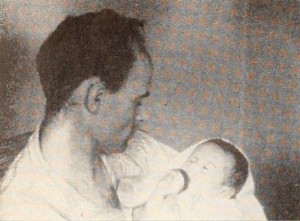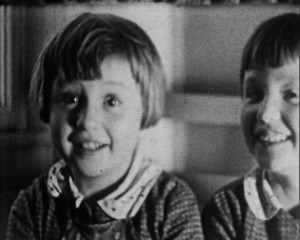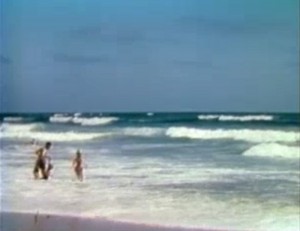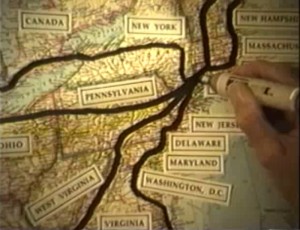"Clyde Hammond, of 65 Murdock Street, Youngstown, Ohio, won an honorable mention in the 16 millimeter division for his study of country life, 'The Dragon Fly.'Mr. Hammond worked out a strong atmospheric study of a selfish country boy, home from college, and his hard-working farmer father."Photoplay, Jun. 1928, 137

"Here, in Duck Soup, is the true life blood of amateur movie making — the family film. Since the hobby's very beginning in 1923, and consistently through the years since that time, more persons have bought more amateur movie cameras to take family films than for all other reasons put together. And yet look at the results! Or better still, don't look at them — for they are on the average an incoherent hodgepodge of over and underexposure, unsteady camera handling and wild panning on disconnected mementos of familiar milestones. Duck Soup, for those filmers who are lucky enough to see it, should change all that. For here is a well planned and crisply executed family film which has a beginning, a middle and an end. It has also precise camera work, fluid sequencing, and lighting on the children which will delight the heart of all home filmers. Do not, however, let these disciplined excellencies mislead you. For, above all else, Duck Soup is no stodgy exercise in family record keeping. These people had fun! Look . . . Duck Soup is a rollicking, rambunctious saga of what happens in a household when Pop, charging recklessly that the trials of homekeeping are "duck soup," is deserted for a few days by his deserving wife. What happens, as Pop gets the works from a quintet of utterly engaging youngsters, shouldn't happen (as they say) to a dog. There is stolid, well-meaning Tim, who, returning from the corner store, mangles a loaf of bread beyond all human use; there is demure and lovely Ellen, who plays the bride with Mom's best lace tablecloth; there are Greg and Kevin, impish and angelic twins, who roughhouse their way through the afternoon nap, bathing, haircuts and countless other high-spirited adventures. And there is, finally, Gary, the baby, who bawls like a foghorn and is Pop's particular problem-of-the-day. Duck Soup, in recounting these hilarious misadventures, is not a "great" film in the majestic sense of the word. (Majesty would be impossible in the face of that Lawler brood!) But it is family filming of the finest sort. It is warm, winning and alive with good spirits. Duck Soup is the best of the Ten Best for 1952 — and it richly deserves the Maxim Memorial Award which it has won." Movie Makers, 1952, 323-324.
"Structurally sustained by only the slimmest of plot incidents, Dummy Walks Out is in essence an etude in cinematics, sparkling with brilliant photography and bravura with striking angles. An evening of bridge, consistently bad cards to one player and, in time, the dummy walks out — such is the simple scheme of this masterpiece in miniature. Throughout its brief footage, however, the producers, M. P. Gamber. ACL, and Walter Mills, ACL, have contrived a gleaming glossary of cinematic imagination which delights the eye and beggars analysis. Near shot, closeup and extreme closeup (in several scenes, a single playing card fills the entire screen) follow one another with graphic beauty. Dummy Walks Out is a brilliant answer to the timid souls who "alibi" that the Eights can't take it." Movie Makers, Dec. 1935, 534, 550.
A film about a mother who thinks her family has won a competition in their local newspaper. When a series of unfortunate events happen after, the mother is relieved to find out she was only dreaming.

"Documentary. The holidays of two young children, Heidi and Erika, in the area of the Danube. Shots of the landscape, bathing, playing with animals, visits to the abbey at Melk and a castle" (EAFA Database).
"Among the pictures awarded Honorable Mention is An Evening at Home, by Arthur E. Ojeda, ACL, a rare achievement in film planning — the family picture of interest outside the family. In it the father arrives home from his work and is greeted by the children. Soon, after the bedtime story, they toddle off upstairs, leaving the domestic stage clear for the grownups' dinner and the subsequently arriving neighbors. There follow a shaker of friendly drinks and a session of jigsaw puzzling after which the guests depart. The last lights go out and the film is over. Mr Ojeda's treatment of this theme is clearly sequenced, told without titles and mostly in closeups. Honorable mention was well deserved by the definite interest which he brought to the subject. With more perfect technical execution, an even greater honor might have been won by this family film." Movie Makers, Dec. 1934, 546.

"During five summers from 1957 to 1961, the five-member Barstow family of Wethersfield, Connecticut, set out to visit all 48 of the then United States of America on a series of month-long camping trips. Part I includes seeing famous sites from "America's History" in 24 Eastern, Northern, and Southern states." Archive.org

"During five summers from 1957 to 1961, the five-member Barstow family of Wethersfield, Connecticut, set out to visit all 48 of the then United States of America on a series of month-long camping trips. Part II showcases "America's Wonderlands" with 18 National Parks and other exciting attractions in the great Northwest and Southwest." Archive.org
"Family footage shot in a back garden. A woman holds a young girl in her arms and kisses her on the cheek. Also features five children and two women walking along a quiet country road on a windy day. They hold hands and form a circle to have a game of ring-a-ring-a-roses" (NWFA Online Database).
"Walt MacDonald, proud father of his one year old, has designed a special birthday cake for his son and invited friends. One might ask why a parent should contribute so much time and energy just for the few minutes it takes small fry to undo it all. There are, of course, laughs as junior learns from experience in the lighter vein. A delightful birthday party to be enjoyed again and again, even by junior when he becomes senior" PSA Journal, Nov. 1958, 47.
Total Pages: 19